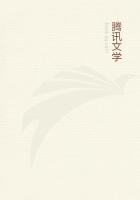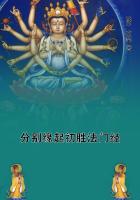Races far more ancient, learned, civilised, than any Frenchman, German, Englishman, or even Italian, in the fifteenth century had believed in these things. The Moors, the best physicians of the Middle Ages, had their heads full, as the "Arabian Nights" prove, of enchanters, genii, peris, and what not? The Jewish rabbis had their Cabala, which sprang up in Alexandria, a system of philosophy founded on the mystic meaning of the words and the actual letters of the text of Scripture, which some said was given by the angel Ragiel to Adam in Paradise, by which Adam talked with angels, the sun and moon, summoned spirits, interpreted dreams, healed and destroyed;and by that book of Ragiel, as it was called, Solomon became the great magician and master of all the spirits and their hoarded treasures.
So strong, indeed, was the belief in the mysteries of the Cabala, that Reuchlin, the restorer of Hebrew learning in Germany, and Pico di Mirandola, the greatest of Italian savants, accepted them; and not only Pope Leo X. himself, but even statesmen and warriors received with delight Reuchlin's cabalistic treatise, "De Verbo Mirifico," on the mystic word "Schemhamphorash"--that hidden name of God, which whosoever can pronounce aright is, for the moment, lord of nature and of all daemons.
Amulets, too, and talismans; the faith in them was exceeding ancient. Solomon had his seal, by which he commanded all daemons;and there is a whole literature of curious nonsense, which you may read if you will, about the Abraxas and other talismans of the Gnostics in Syria; and another, of the secret virtues which were supposed to reside in gems: especially in the old Roman and Greek gems, carved into intaglios with figures of heathen gods and goddesses. Lapidaria, or lists of these gems and their magical virtues, were not uncommon in the Middle Ages. You may read a great deal that is interesting about them at the end of Mr. King's book on gems.
Astrology too; though Pico di Mirandola might set himself against the rest of the world, few were found daring enough to deny so ancient a science. Luther and Melancthon merely followed the regular tradition of public opinion when they admitted its truth.
It sprang probably from the worship of the Seven Planets by the old Chaldees. It was brought back from Babylon by the Jews after the Captivity, and spread over all Europe--perhaps all Asia likewise.
The rich and mighty of the earth must needs have their nativities cast, and consult the stars; and Cornelius Agrippa gave mortal offence to the Queen-Dowager of France (mother of Francis I.)because, when she compelled him to consult the stars about Francis's chance of getting out of his captivity in Spain after the battle of Pavia, he wrote and spoke his mind honestly about such nonsense.
Even Newton seems to have hankered after it when young. Among his MSS. in Lord Portsmouth's library at Hurstbourne are whole folios of astrologic calculations. It went on till the end of the seventeenth century, and died out only when men had begun to test it, and all other occult sciences, by experience, and induction founded thereon.
Countless students busied themselves over the transmutation of metals. As for magic, necromancy, pyromancy, geomancy, coscinomancy, and all the other mancies--there was then a whole literature about them. And the witch-burning inquisitors like Sprenger, Bodin, Delrio, and the rest, believed as firmly in the magic powers of the poor wretches whom they tortured to death, as did, in many cases, the poor wretches themselves.
Everyone, almost, believed in magic. Take two cases. Read the story which Benvenuto Cellini, the sculptor, tells in his life (everyone should read it) of the magician whom he consults in the Coliseum at Rome, and the figure which he sees as he walks back with the magician, jumping from roof to roof along the tiles of the houses.
And listen to this story, which Mr. Froude has dug up in his researches. A Church commissioner at Oxford, at the beginning of the Reformation, being unable to track an escaped heretic, "caused a figure to be made by an expert in astronomy;" by which it was discovered that the poor wretch had fled in a tawny coat and was ****** for the sea. Conceive the respected head of your College--or whoever he may be--in case you slept out all night without leave, going to a witch to discover whether you had gone to London or to Huntingdon, and then writing solemnly to inform the Bishop of Ely of his meritorious exertions!
In such a mad world as this was Paracelsus born. The son of a Swiss physician, but of noble blood, Philip Aureolus Theophrastus was his Christian name, Bombast von Hohenheim his surname, which last word he turned, after the fashion of the times, into Paracelsus. Born in 1493 at Einsiedeln (the hermitage), in Schweiz, which is still a famous place of pilgrimage, he was often called Eremita--the hermit.
Erasmus, in a letter still extant, but suspected not to be genuine, addressed him by that name.
How he passed the first thirty-three years of his life it is hard to say. He used to boast that he had wandered over all Europe, been in Sweden, Italy, in Constantinople, and perhaps in the far East, with barber-surgeons, alchemists, magicians, haunting mines, and forges of Sweden and Bohemia, especially those which the rich merchants of that day had in the Tyrol.















